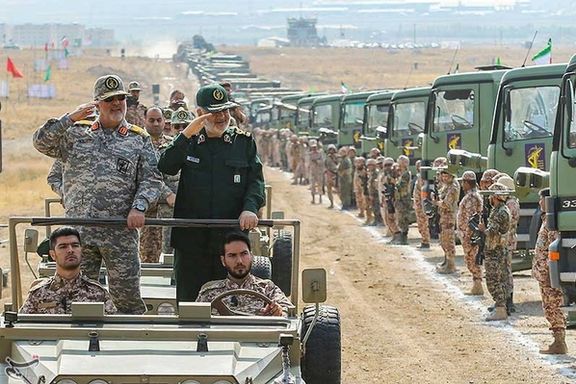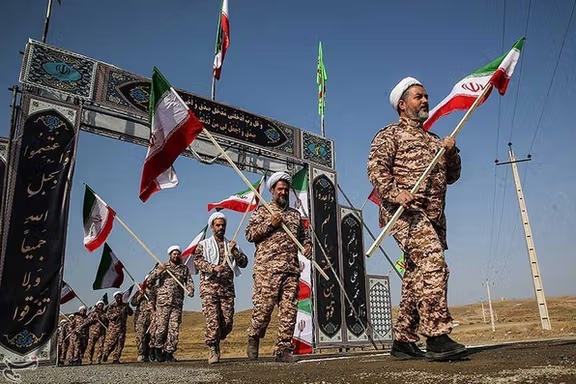US Lawmakers Call On Allies To Designate IRGC

A bipartisan group of US congresspeople have urged Washington’s allies to designate Iran’s Revolutionary Guards as a terror group.

A bipartisan group of US congresspeople have urged Washington’s allies to designate Iran’s Revolutionary Guards as a terror group.
In letters addressed to the heads of the US-allied nations - the UK, Australia, Canada, and India - 22 Republican and Democratic lawmakers reiterated calls to swiftly act and officially join Washington in labeling the IRGC in its entirety.
“The Islamic Republic of Iran is the world’s leading state sponsor of terrorism and the IRGC is the central core of the country’s terrorist operations at home and abroad,” the lawmakers wrote Thursday, adding that “the IRGC has openly carried out plots targeting citizens around the world for decades.”
Rep. Claudia Tenney (R-NY) and Rep. Brad Schneider (D-Ill) led the effort in cooperation with Joe Wilson (R-SC), Brad Sherman (D-Calif), Pat Fallon (R-Texas), Adam Schiff (D-Calif) and 16 others.

They argued that designating the IRGC will send a clear message to Iran that acts of terrorism against the US and its partners as well as innocent citizens “must not and will not be tolerated.”
“Now the United States Congress is calling on the United Kingdom, Australia, India, and Canada to join our fight in combating this organization’s cruelty,” Tenney said in a statement. “It is time that all nations designate the IRGC as a terrorist organization to send an unequivocal message that its terrorist activities must end.”
In each letter, the signatories elaborated on individual events that proved the IRGC is acting against the citizens of the four countries.
Canada has designated the Quds Force, the extraterritorial arm of the IRGC, but has been reluctant to list the IRGC as a foreign terrorist group. Canadian officials said last year that the designation would be too much of a “blunt instrument” that could punish innocent people in Canada who were conscripted into the IRGC as part of their mandatory military service.
The Australian Senate recommended the designation in February, but Canberra has suggested it may not legally be able to designate the IRGC as a terror group.
The UK has yet to make a formal decision, but it has been vacillating between the idea of proscribing the IRGC in its entirety and sanctioning only the senior members of the force for at least several months, especially after September when nationwide anti-regime protests engulfed the country. The IRGC, along with its paramilitary Basij volunteers, has been the main force to crack down on the popular uprising.
India is a close ally of the US, but it has long maintained cordial relations with Iran, and it is not expected to follow suit and blacklist the outfit.
The US is also ramping up its pressure on the European Union for the designation. In March, a bipartisan group of US senators wrote a letter to the High Representative for Foreign Affairs and Security Policy, Josep Borrell, encouraging the EU to designate the Islamic Revolutionary Guard Corps as a foreign terrorist organization.
Earlier in the week, the Swedish parliament unanimously voted to designate the IRGC. It swiftly followed the execution of Swedish-Iranian Habib Chaab (Asyud) which saw Sweden's Ministry of Foreign Affairs summon Iran's chargé d'affaires in protest of the execution, one of hundreds since the start of the year.
Earlier in the day, an Iranian lawmaker said Britain and France do not dare to designate the IRGC as a terrorist group because they know their forces in the region will be attacked if they do so.
Washington designated the IRGC as a foreign terrorist group in 2019 under the Trump administration as relations with Iran plummeted following Washington’s withdrawal from the 2015 nuclear deal. Tehran responded at the time by designating the US military as a terrorist group.